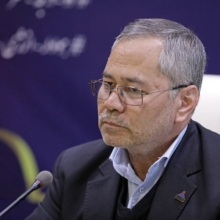India-Russia Oil Deal Talks Halted Amid New US Sanctions

RoydadNaft – Negotiations for a long-term crude oil supply agreement between Indian state-owned refiners and Russia have been put on hold due to the latest round of US sanctions on Russian oil and gas entities. Typically, India purchases Russian crude oil on a spot basis, while long-term contracts are reserved for suppliers from West Asia. The term deal was aimed at securing stable prices and a consistent supply of Russian oil.
According to official sources, the Indian government is currently analyzing the impact of the sanctions, which may cut off access to discounted Russian crude and force Indian refiners to rely on market rates. “Given the current geopolitical climate, any agreement requires thorough planning to avoid disruptions in shipments. However, the growing sanctions have complicated the process,” an official stated.
No Immediate Disruption Expected
Despite the uncertainty, the government does not foresee an immediate supply disruption, as oil shipments already en route are expected to arrive within six to eight weeks. This timeframe is seen as sufficient for Indian refiners to explore alternative supply options or renegotiate terms. One source added, “The geopolitical situation may change after US President-elect Donald Trump assumes office on January 20, giving us time to reconsider the term deal.”
A long-term agreement with Russia could help reduce price volatility and ensure a steady supply of oil at lower prices. Petroleum and Natural Gas Minister Hardeep Singh Puri has reiterated India’s readiness to continue purchasing Russian oil under favorable terms.
Rosneft-Reliance Deal Faces Uncertainty
The halt in negotiations also raises concerns over a significant deal signed last month between Russian oil giant Rosneft and Reliance Industries Ltd (RIL). The agreement, reportedly the largest energy deal between the two nations, involves the supply of 500,000 barrels of crude oil per day over 10 years, valued at approximately $13 billion annually.
However, the latest sanctions on Rosnefteflot, the marine transportation subsidiary of Rosneft, have cast doubt over the deal’s execution. Thirteen vessels, including eight Russian-flagged oil tankers, owned by Rosnefteflot have been blacklisted by the US.
Rosneft, Russia’s second-largest company by market capitalization, has been actively expanding its presence in the Indian market. In December, Russian President Vladimir Putin mentioned that Rosneft had invested $20 billion in India, signaling the importance of bilateral energy cooperation. Putin’s upcoming visit to India, scheduled for early December, is expected to focus on strengthening these energy ties.
India’s reliance on Russian oil has grown in recent years due to favorable pricing and supply flexibility. However, the evolving geopolitical situation and increasing sanctions may prompt India to explore new avenues for securing its energy needs.













